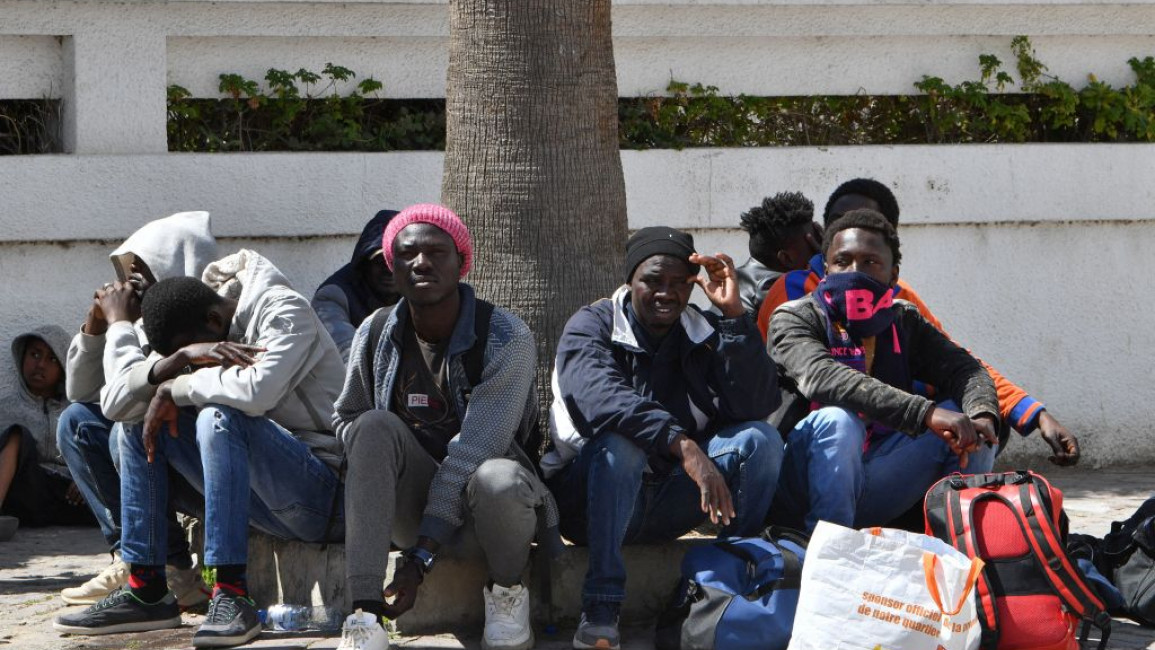Tunisia: security forces expel 400 migrants to Libya borders after death of Tunisian during clashes
Since 3 July, over 400 sub-Saharan migrants and asylum seekers were reportedly forcibly expelled to the Libyan border, amid an escalation of anti-migrant sentiment in the North African state after the death of a Tunisian man during clashes with a group of migrants in Sfax.
On Monday, Tunisian security forces deported the first group of twenty migrants, including a pregnant woman and a child to the Ben Gardane Area, a militarised Tunisia-Libya border zone.
The next day, hundreds were dropped in the same area, including dozens of children, women, and migrants with asylum seeker status. The group includes reportedly nationalities from Cameroon, Mali, Guinea, Côte d’Ivoire, and Chad.
Human rights activists say many of the migrants were severely injured during the deportation process. Reports about fatalities and sexual assaults against the deported have yet to be confirmed.
"We were forced to spend the night in the desert area with no tents, no food," said one of the deported migrants.
"They broke most of the people's phones during the deportation," he added.
🚨Alert: #Tunisia security forces abused & collectively expelled 20+ West/Central African nationals to a remote area at the Tunisia-#Libya border. Includes a girl 16 yrs old, 2 pregnant women (1 in very bad condition), 2 registered asylum seekers. They need urgent help. pic.twitter.com/TTFfu4K16Y
— Lauren Seibert (@LozSeibert) July 3, 2023
Presently, an estimated 400 to 500 sub-Saharan migrants are stranded in the area. Those who managed to keep their phones safe are struggling to continue documenting their tragedy as they have no access to electricity or free internet.
The exportations are set to continue in the next few days.
Human rights activists say they are still waiting on authorisation to access the zone.
On Tuesday, The Tunisian Presidency said that President Kais Siaed had a phone call with Abdul Hamid Al-Dabiba, Head of the Libyan National Unity Government, in which they discussed "the phenomenon of irregular migration and the need for concerted efforts to find quick solutions."
Both states have yet to issue an official statement about the situation.
Sfax clashes
On Sunday evening, clashes between migrants and residents broke out in Sfax, the country's most migrant-populated city causing mass damage to nearby houses and vehicles.
The clashes escalated on Monday taking a more aggressive turn after a Tunisian man was stabbed to death by three migrants, according to the spokesman for the Sfax prosecution Faouzi Masmoudi.
The news of the murder quickly spread via a video posted on social media showing the dead man's body in the street and a trail of blood.
The video sparked a torrent of reactions, often with racist overtones, calling for the expulsion of African migrants from the city and for the avenge of the man's death.
"We are going to avenge his death", chanted a group of young people during the funeral of the deceased according to a video published by the Syeb Trottoir collective which campaigns against irregular immigration in Sfax.
Clashes between migrants and residents continued on Tuesday in several districts of Sfax, turning the city for the third night in a row into a battlefield with fires and robberies tormenting the residents.
Pictures from inside the train station in Sfax, where black-skinned migrants are preparing to leave for Tunis, the capital. Due to violence and displacement from homes by force of citizens in Sfax. #TunisiaNotSafe #TunisiaNotSafe pic.twitter.com/kiJJdgeRwH
— Refugees in Tunisia (@RefugeesTunisia) July 5, 2023
On Wednesday afternoon, dozens of migrants were seen at Sfax train station leaving for other cities, in an attempt to escape the deportation and wave of violence.
According to Romdane Ben Amor, head of the Forum for Economic and Social Rights (FTDES), a local NGO that follows migration issues in Tunisia, the current tension in Sfax was "expected".
Sfax, in central-eastern Tunisia, is the departure point for a large number of migrant boat crossings to Italy. In the popular neighbourhoods of the city, where most migrants live, verbal and physical violence is frequent between the two parties.
Though, President Kais Saied's infamous speech on 21 February, in which he claimed that Sub-Saharan migrants threaten to change the demographic makeup of the country, has accentuated the racism in the country leading to violent attacks against black migrants.
On Tuesday, Saied reaffirmed his previous claims saying that "criminal networks" are behind illegal immigration and that they aimed to disturb "social peace in Tunisia".
"We warned against the tragic and inhuman situation of migrants aggravated by hate speech against them, which explains this violence," Ben Amor told TNA.



